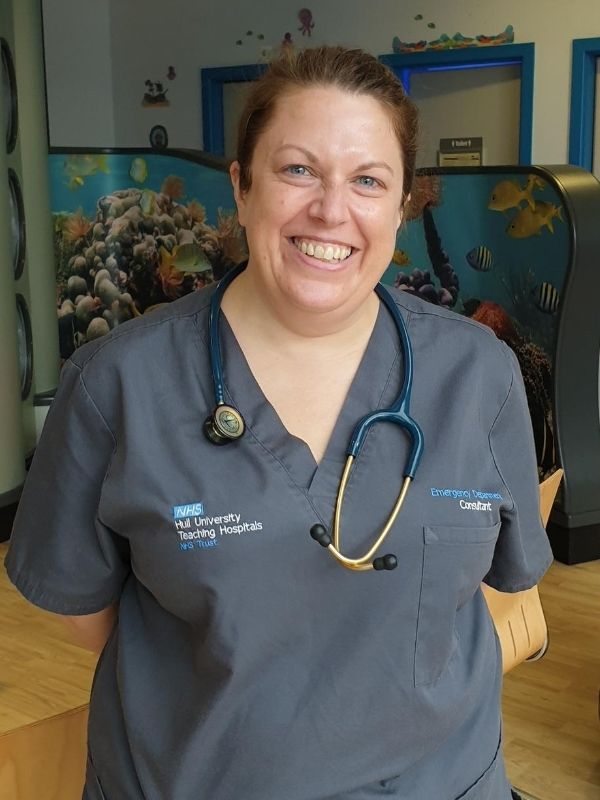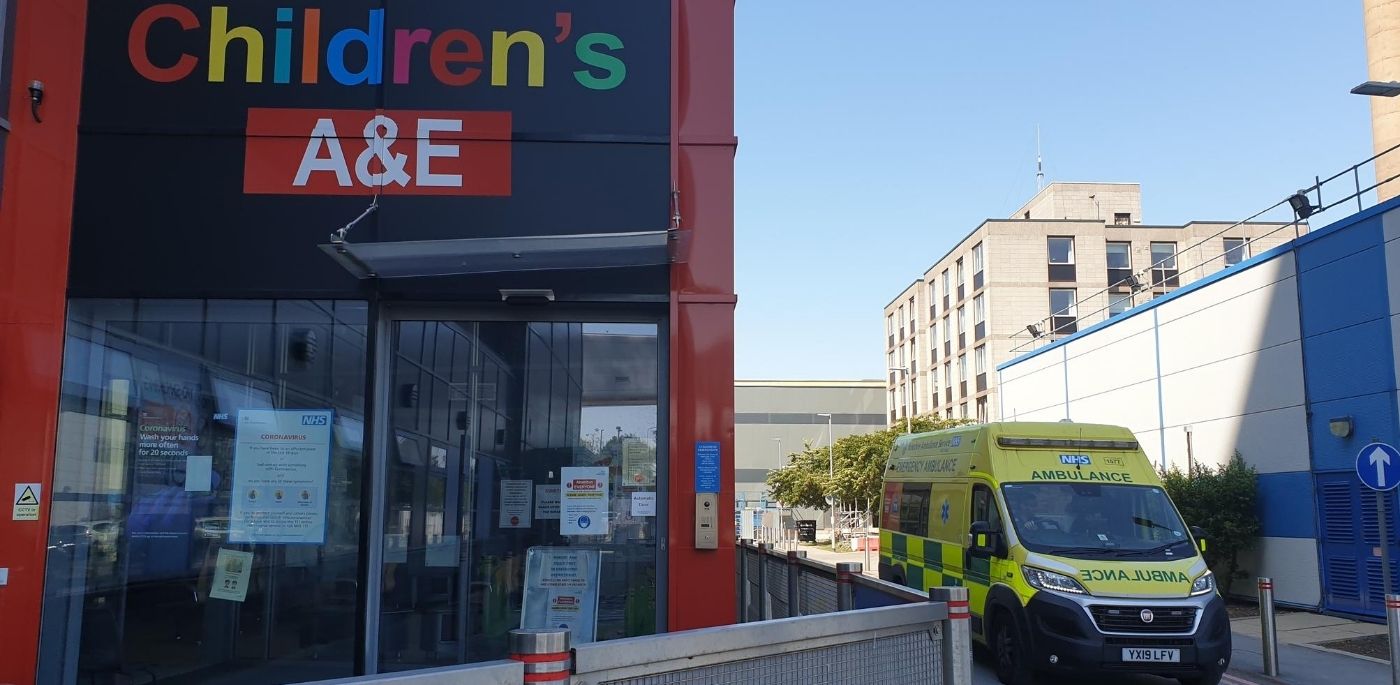Hayfever, insect bites, constipation and verrucas: minor health problems which most of us would sort with a quick trip to the pharmacy.
But they’re also among a growing number of routine complaints which parents are seeking help for at Hull Royal infirmary’s Children’s A&E.

Paediatric emergency medicine consultant, Dr Liz Herrieven
Dr Liz Herrieven, consultant in paediatric emergency medicine (pictured, left) says taking children to hospital when they don’t need to be there could mean putting them more at risk:
“During the height of the coronavirus outbreak, people were naturally fearful of coming to hospital and so parents became very good at either treating their children’s minor illnesses and injuries at home, or using alternatives such as local pharmacies or urgent treatment centres instead.
“After lockdown ended and now restrictions are starting to ease, we are seeing more and more parents bringing their children to us for help with non-urgent complaints again such as runny eyes, verrucas and upset tummies.
“In many cases, these children could have been cared for more appropriately and received the treatment they needed more quickly if their parents had taken them elsewhere. Not only that, but in the current climate bringing any child to hospital when they don’t need to be here potentially puts both the child and the parent at greater risk of exposure to COVID19.”
A total of 206 patients have died with COVID-19 at Hull University Teaching Hospitals NHS Trust since March 19th.
Dr Herrieven is now asking for parents’ help ahead of an unpredictable winter:
“Since lockdown restrictions began to ease, the number of patients coming through the doors to Children’s A&E has been gradually increasing. During the height of the coronavirus outbreak, there were days when we could see as few as 20 patients per day, but now we’re averaging three times that, and in the depths of winter numbers have been known to go as high as 120.
“No one knows what’s going to happen with COVID19 as we head into the winter months, but we do expect an increase in demand for paediatric emergency care.
“We’re appealing to parents to start forming good habits now, and to start using alternatives to A&E for their children wherever possible. Reducing the number of routine ailments that our specialist staff have to treat will free us up to care for the most seriously ill children when they need us most.”

